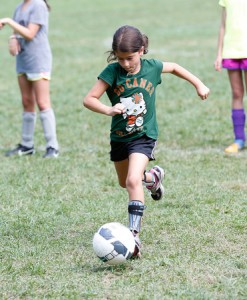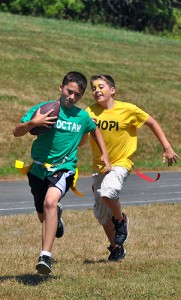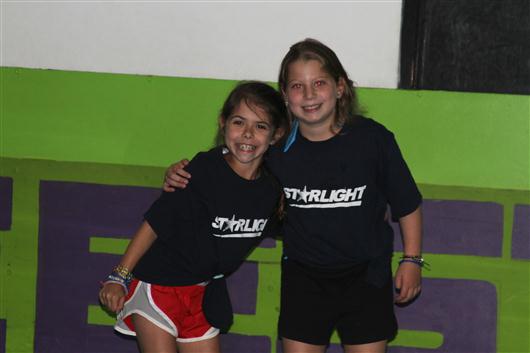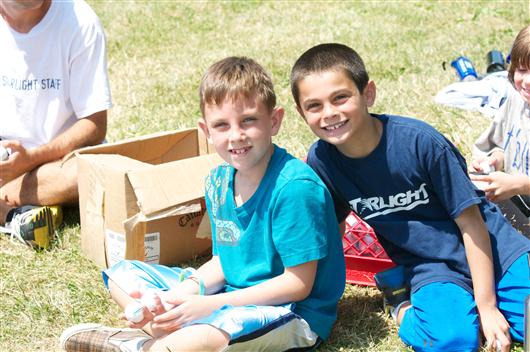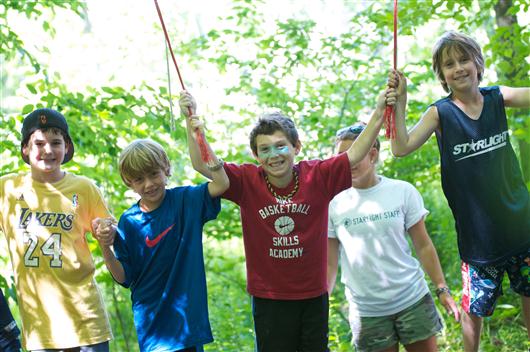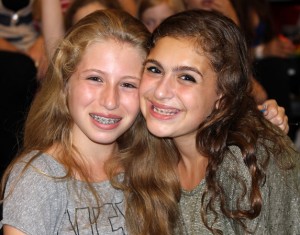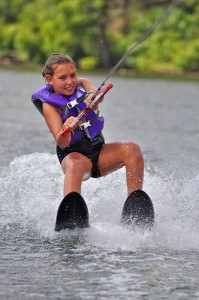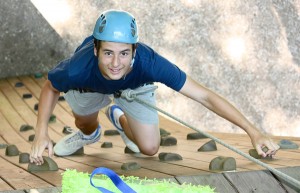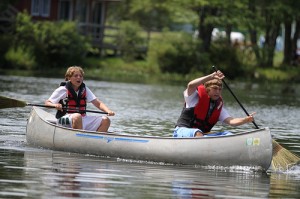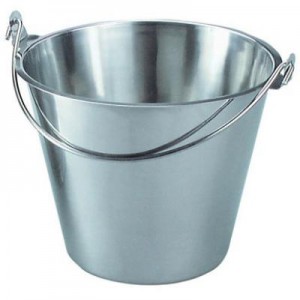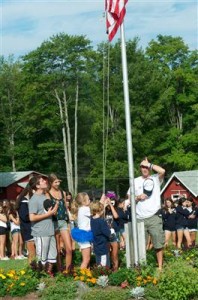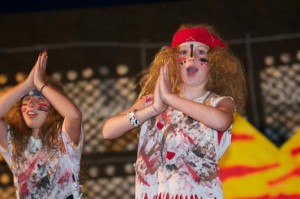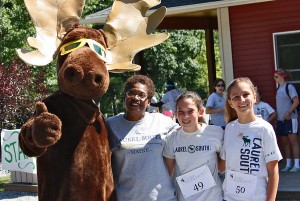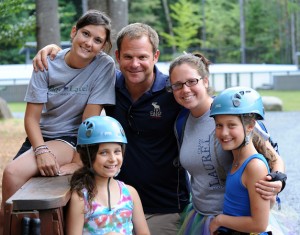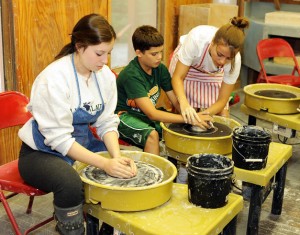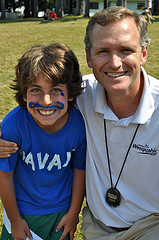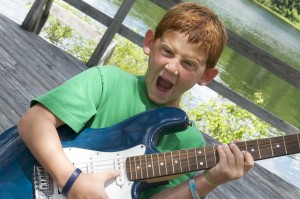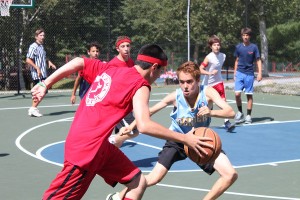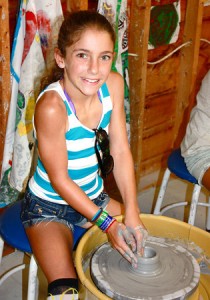This week’s guest blog comes from the Laurel camps and showcases something as synonymous with the state of Maine as summer camp–LOBSTER!
At the Laurel Camps, our mascots are moose.
But as everyone in Maine knows, lobsters are as much a part of the state experience as moose.
The first record of Maine lobsters dates to 1605. Back in the day, they were caught by hand. Four-foot lobsters were common. The record seems to be a 12-pounder. That’s a lot of meat.
But they were considered “paupers’ food” – unfit for most people to eat.
By the late 1700s, as tastes evolved, boats with open holding wells on deck allowed live lobsters to be shipped. The lobster market grew.
 Maine’s industry got another boost in 1843, when the first cannery was built in Eastport. As demand grew, so did technology. Wooden pots and special boats helped lobstermen broaden their range. Soon, they were hauling catches in deep water, far from shore.
Maine’s industry got another boost in 1843, when the first cannery was built in Eastport. As demand grew, so did technology. Wooden pots and special boats helped lobstermen broaden their range. Soon, they were hauling catches in deep water, far from shore.
But demand outpaced lobsters’ ability to reproduce. Inevitably they became smaller, and more scarce. With 3,000 full-time lobstermen working Maine’s waters, worries about extinction increased.
Regulations helped. The number of traps a lobsterman could set was reduced from 1200 to 800. The number of licenses was strictly controlled. Small lobsters, and females with eggs, must be thrown back.
 The effect has been dramatic. Lobsters are now plentiful. In fact, last summer prices plunged – to the detriment of hard-working, independent lobstermen.
The effect has been dramatic. Lobsters are now plentiful. In fact, last summer prices plunged – to the detriment of hard-working, independent lobstermen.
While you will only find lobster at Camp Laurel and Laurel South at our annual, end-of-summer Steak and Lobster Banquet, it is plentiful throughout the “207” state at lobster pounds, supermarkets, restaurants – even gas stations – all year long.
Put on that bib, crack those shells, and enjoy!
The preceding blog was originally posted to the Camp Laurel blog on February 7, 2013

 570-798-9831
570-798-9831
